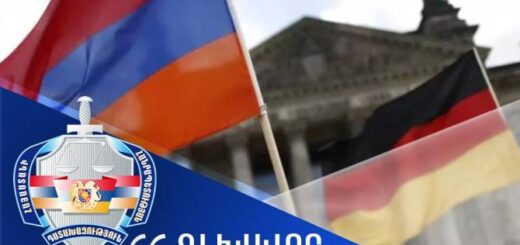Armenia Says Peace Talks Remain Stuck As Baku Fumes Over Brussels Meeting

Armenia and Azerbaijan have reached several agreements as part of their continuous peace treaty negotiations, but they remain divided on two main issues, according to Armenia’s top diplomat.
Foreign Minister Ararat Mirzoyan told Armenian Public Television late on April 6 that the two nations had “a historic opportunity to establish lasting peace in the South Caucasus” if they can resolve the remaining roadblocks.
Yerevan and Baku do not yet see eye-to-eye on mutual recognition of territorial integrity and the subsequent border delimitation process. The two sides are also divided on reopening transport links in the region.
Mirzoyan said Yerevan and Baku had agreed several times at top-level meetings on recognizing each other’s territorial integrity based on the 1991 Alma-Ata Declaration but that the Azerbaijanis showed a “reluctance” when it was placed in a draft treaty.
RFE/RL could not immediately reach Azerbaijan’s foreign minister, Ceyhun Bayramov, for comment.
Baku and Yerevan have been conducting negotiations over their respective borders for decades but the process took on new urgency after Azerbaijan recaptured Nagorno-Karabakh amid a swift military offensive in September 2023. Unlike in the past, the talks are now being conducted one-on-one without Russian, U.S., or EU mediators.
Azerbaijani and Armenian diplomats continue to exchange drafts of a peace agreement back and forth and hold occasional meetings of a commission on the border itself, but have yet to clinch a final peace agreement. Mirzoyan expressed hope that would happen in the foreseeable future.
Mirzoyan’s interview comes on the heels of a trilateral meeting in Brussels on April 5 between European Commission President Ursula von der Leyen, U.S. Secretary of State Antony Blinken, and Armenian Prime Minister Nikol Pashinian.







